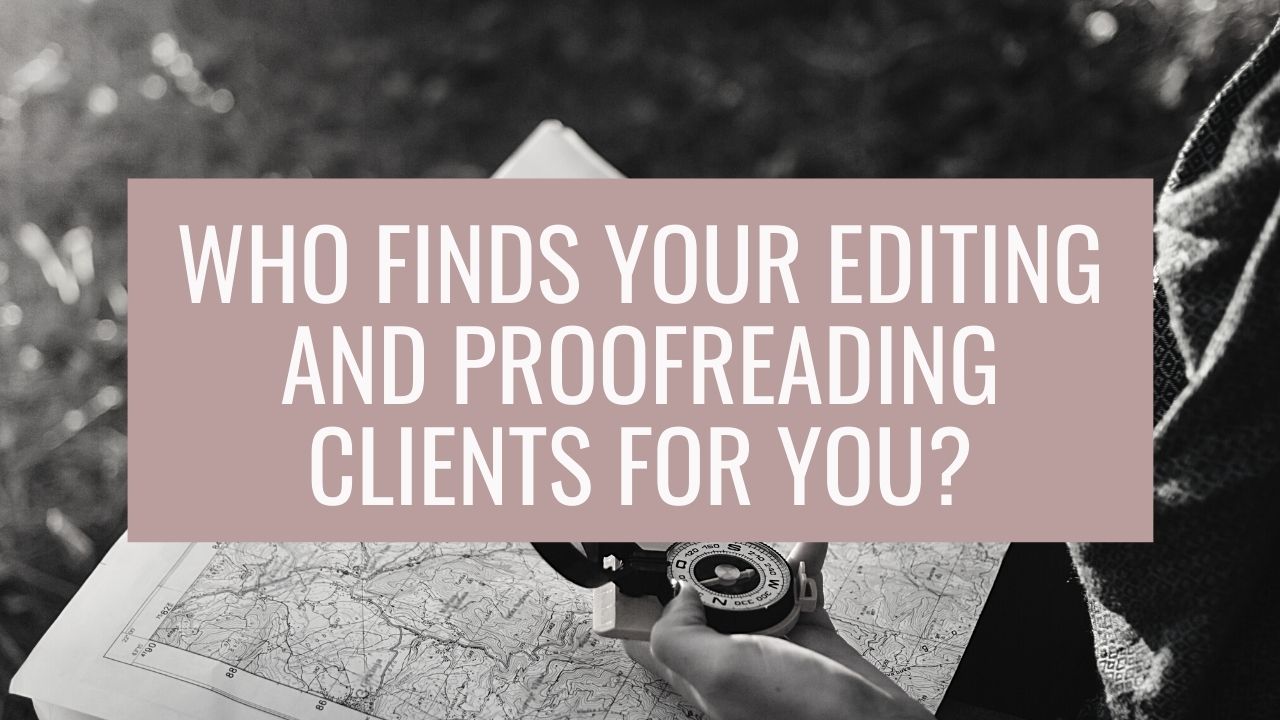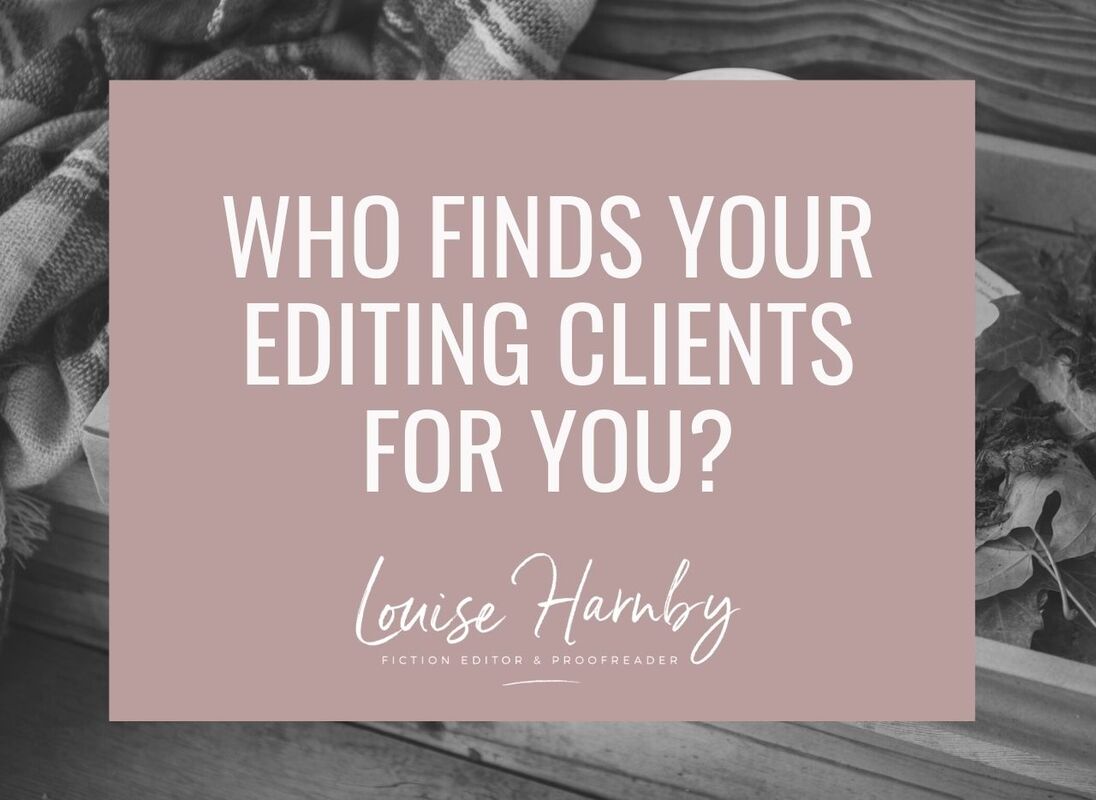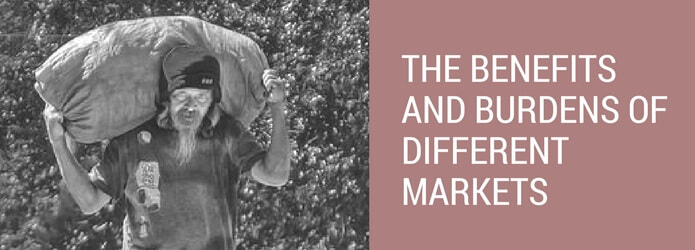|
If you’re feeling the pinch because publishers, packagers and agencies aren’t offering your desired fees, think about the issue from a marketing perspective.
The fees on offer from publishers and packagers are a perennial topic of conversation for professional editors and proofreaders. Some feel frustrated and anxious about the rates; others enjoy the security afforded by a stable workflow that requires no client-acquisition effort.
It’s important to remember that not everyone’s lowest-paying clients are publishers. If yours are, it might be that you need to switch clients not types of client. Here’s my wise friend and fellow editor Liz Jones: ‘It’s often said that publishers don’t pay as well as non-publishers. In my experience, this isn’t necessarily true. There isn’t much difference in the mid-range, and fewer of my non-publishers feature at the low end, but my highest payers in 2016 were still publishers.’ Crunching the Numbers
Here are a couple of made-up case studies. The numbers are inevitably loose – editorial earnings vary hugely depending on subject area, type of editing, country of residence, and individual experience so it’s impossible to generalize. And global comparisons are problematic because of currency fluctuations and cost-of-living variances.
Just think of these examples as glimpses rather than universal statements of how the market is!
Case study 1: Working with publishers
Joe Word-King is a professional proofreader specializing in the social sciences. He works exclusively for publishers. In the past 12 months he’s been commissioned by 5 publishers to proofread 32 books by 32 authors. Joe’s working day Joe starts at 9 a.m. and finishes at 4.30 p.m. He takes an hour for lunch and 15-minute breaks every 90 minutes to give his eyes a rest. This means he has a total of 6 hours per day available for proofreading. During the breaks he does stuff like checking his emails, grabbing cups of tea and something to eat, and taking a little fresh air. How he acquired those publisher clients One found him in the Society for Editors and Proofreaders’ Directory of Editorial Services. Four added him to their freelance list after he emailed them and asked if he could take their proofreading test (which he passed). How the work offers come in The publishers do the author-acquisition work. The book production managers from those presses email him to ask if he’s free to take on a project of A pages, B words, with a budget of C hours and a total fee of £D. Joe decides whether he will accept or decline the work.
Case study 2: Working with self-publishers
Alicia Sentence-Queen is a professional copyeditor. She works exclusively for independent fiction authors. In the past 12 months she’s been directly commissioned by 19 authors to copyedit 19 books. Alicia’s working day Alicia starts at 9 a.m. and finishes at 4.30 p.m. She takes an hour for lunch and 15-minute breaks every 90 minutes to give her eyes a break. She also spends an average of 75 minutes per day writing blog articles and sharing her content online so that her website is visible in the search engines. This means she has a total of 4 hours and 45 minutes available per day for copyediting. During the breaks she does stuff like checking her emails and social media accounts, grabbing cups of tea and something to eat, and taking a little fresh air. How she acquired those self-publisher clients Fourteen came directly from Google, three from the CIEP’s Directory of Editorial Services, and two from Reedsy. How the work offers come in Alicia does the author-acquisition work. She makes herself visible online so that her clients can find her. They then get in touch directly. A process of evaluation, sampling and quoting begins. Alicia offers a price for the project and waits to see whether the author will accept or decline. Most of the enquiries that Alicia receives don’t turn into paid work – perhaps the author doesn’t like the price, the time frame doesn’t work, or Alicia doesn’t feel she’s the right fit for the job. For that reason, Alicia needs to attract enough people for whom the price, the time frame and the fit will work.
Alicia has a change of heart!
Alicia’s heart is in copyediting and she figures that if she had a bunch of publisher clients doing all the author-acquisition work she wouldn’t have to devote 75 minutes per day to making herself visible. She earns a minimum of £35 per hour. Given that she spends 6 hours and 15 minutes each week marketing, that time costs her £218.75. That works out at nearly a grand a month! She and Joe are good mates so she gets in touch with him and tells him that she’s thinking about working for publishers. They chat about fees – Joe says he earns an average of £23 per hour, which is two thirds of what she’s getting from her indie authors. Given that Joe proofreads for academic presses, Alicia does a little more digging. She talks to a few fiction specialists. The fees for trade publishers seem to be lower still, such that she could end up averaging around £18 an hour, half of what she’s earning now.
What could Alicia do? If Alicia loathes marketing and can meet her weekly needs with £540, she could take the hit and switch to working with publishers, who will do all her author-acquisition work for her and let her concentrate on doing what she loves best. Yes, she’ll earn less but she’ll be happier. If Alicia loathes marketing but needs to earn at least £750 a week to meet her needs, the switch won’t work. She can’t not do the marketing because the reason why she’s able to attract the clients who are prepared to pay her £35/hr fee is because she’s visible, and being visible means doing marketing. If Alicia’s determined to switch solely to publishers, she’ll have to make up a shortfall of £210. That means reducing her monthly spend or increasing the hours she spends on copyediting. She’ll need to decide whether either option would add a level of stress into her life that exceeds her hatred of marketing. If it does, she’d be better off maintaining the status quo! Joe has a change of heart too! After chatting with Alicia, Joe feels a little strung out. Thirty-five quid an hour? He’d love to earn that. Joe’s not averse to putting in the marketing work, not if he can earn the money that Alicia’s on, but it’s not going to happen overnight – Alicia told him that it took a few years for her marketing strategy to kick in so that’s she’s never without work. At the moment, Joe doesn’t have to do anything to find his authors; the publishers do all the grind for him. Sure, he had to get those publisher clients, and he put in a lot of effort – he contacted 70+ presses initially, most of whom weren’t taking on new indie proofreaders. Nevertheless, having now secured a strong publisher base, he sits back and lets the work come to him. There’s a cost to this, of course – someone else is finding the authors and so they get to control the price. His only control over the rate is his right to accept or decline the work. What could Joe do? If Joe can introduce efficiencies into the proofreading process he’ll be able to improve his hourly rate. If he’s already as efficient as he can be, he’ll need get his marketing hat on now and start building his visibility. Over time, he’ll be able to slide out his lower-paying publishers, confident that he’ll attract enough good-fit clients to provide him with the same income stability that the publishers currently afford him. If he needs to maintain his current earnings, he’ll have to do the additional marketing work outside of his normal office hours. In the longer term, as the visibility strategy kicks in, he’ll be able to mimic Alicia’s model and build this marketing activity into his business day. Joe needs to decide whether the impact on his work/life balance is something he’s prepared for. He needs to set the pressure of the additional work against the anxiety born from the publisher fees, and decide whether the change is the right move for him.
Different markets, different benefits, different burdens
On the surface, it might seem like the Alicias of this world have a better deal than the Joes. But there’s more to running a business than just numbers. We have to take into account not just what we need to earn but also what we have to do for what we earn. If you’re happy to be an editor and a marketer, you’ll be able to reap the benefits from wearing those two hats purposefully. If your heart lies in editing only, you have some choices:
I worked exclusively for publishers for a good few years and at the time it suited my life very well. I had a toddler to look after and preschool trumped business promotion. Now I have a teenager and marketing trumps Minecraft! Plus, I happen to love marketing my editorial business so it's not a stress point for me. But that might not be the same for you. Furthermore, the editorial market isn’t binary. Joe and Alicia might look nothing like you. You might sit somewhere in between. You might earn more than them or less than them, and have a ton of demands in your life that J&A will never experience. There’s no one size fits all. Just don’t forget that if you’re not finding your own clients, but your schedule is full, someone else is doing the job for you. There’s a cost to that, and it’s fair that there should be. Further reading
Louise Harnby is a line editor, copyeditor and proofreader who specializes in working with crime, mystery, suspense and thriller writers.
She is an Advanced Professional Member of the Chartered Institute of Editing and Proofreading (CIEP), a member of ACES, a Partner Member of The Alliance of Independent Authors (ALLi), and co-hosts The Editing Podcast. Visit her business website at Louise Harnby | Fiction Editor & Proofreader, say hello on Twitter at @LouiseHarnby, connect via Facebook and LinkedIn, and check out her books and courses.
5 Comments
19/2/2018 08:05:42 am
This is a marvellous post, so clear and understandable. I am not a full-time editor, and I'm lucky enough that all of my new transcription work comes through recommendations. That's a much easier "sell" as if someone has recommended me, I just tell the new person my rates and they will usually come on board. Most of my editing clients are regulars now, so we have set rates. So in the early days I did a lot more marketing and now I have to do less (although I choose to do fewer total hours rather than more paid hours).
Reply
Louise Harnby
19/2/2018 12:20:22 pm
Cheers, Liz! You've raised an important point. Some editors, like you, market themselves into a position whereby they can build up a bank of regulars. This happens less for me because of my focus on fiction, so I have to be on the ball always!
Reply
25/2/2018 06:20:03 pm
I don't edit much fiction, so that helps, I think - although my two remaining fiction clients are both regulars! I know I'm a right old outlier in the business, though. 19/2/2018 02:18:56 pm
Excellent article, Louise, as always. 95% of my work since I started out has been with publishers, and I have found it much easier and more preferable, despite the lower pay feeling a little worrying at times (I'm sure that anxiety will ease as I continue to gain publisher clients – at the moment I'm working with three, and continue to reach out to more).
Reply
Louise Harnby
19/2/2018 02:31:18 pm
You're a perfect example of Joe prior to having a change of heart, Rachel. You understand where the value lies in your current client base and how that allows you to devote other time to things that are important to you - your writing! I'm confident, too, that as you expand your client base you'll find yourself in Liz Jones's situation - you'll make that market work harder and more profitably for you. That you've acquired three publisher clients who can acquire your authors for you is a massive achievement, and I know you've talked about using all of that experience to broaden your client base still further. The first few years are always the hardest in any new business, but you're right on track!
Reply
Leave a Reply. |
BLOG ALERTSIf you'd like me to email you when a new blog post is available, sign up for blog alerts!
TESTIMONIALSDare Rogers'Louise uses her expertise to hone a story until it's razor sharp, while still allowing the author’s voice to remain dominant.'Jeff Carson'I wholeheartedly recommend her services ... Just don’t hire her when I need her.'J B Turner'Sincere thanks for a beautiful and elegant piece of work. First class.'Ayshe Gemedzhy'What makes her stand out and shine is her ability to immerse herself in your story.'Salt Publishing'A million thanks – your mark-up is perfect, as always.'CATEGORIES
All
ARCHIVES
July 2024
|
|
|
|





















 RSS Feed
RSS Feed





